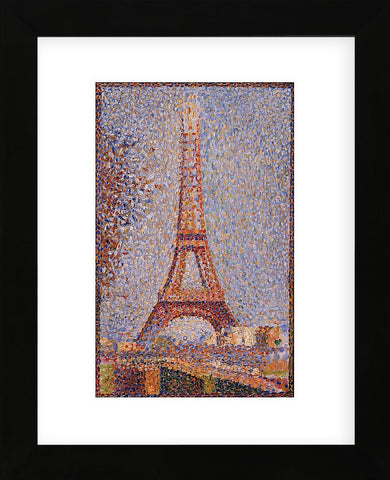Product Detail
- Overall: 16" H x 13" W x 0.75" D
- Overall Product Weight: 2.5lb.
- Material: Glass
- High-quality print on heavy paper
- Printed with vibrant, color-fast inks
- Framed in a contemporary style molding; available in black, gold, and white
- Sawtooth hanger
- Unmatted
Image is Copyrighted and Property of its respective owner
Product Detail
- Overall: 16" H x 13" W x 0.75" D
- Overall Product Weight: 2.5lb.
- Material: Glass
- High quality print on heavy paper
- Printed with vibrant, color-fast inks
- Framed in a contemporary style molding; available in black, white, and gold
- Sawtooth hanger
- Unmatted
About the Artist
Georges Seurat was a French painter and the founding figure of Neo-Impressionism, a movement which dedicated itself to the scientific representation of light and color.
Seurat left the Impressionist movement and developed his "Divisionist" technique in an attempt to bring formal structure to Impressionism. His goal was to demonstrate "optical mixture." He accomplished this by placing small dots of contrasting colors next to one another in his paintings. The effect is one of pure color that blends in the viewer's eye, not on the palette or canvas. This technique is seen in the painting, "Sunday Afternoon on the Island of La Grande Jatte." This painting was shown in the last Impressionist exhibition in 1886. Seurat made countless drawings and oil sketches of different aspects of his initial ideas that were ultimately included in his final canvases. He was careful to balance his compositions so that no single aspect of the painting dominated the whole. Seurat's paintings proved to be a great influence on the Post-Impressionists, including Van Gogh, Gauguin and Toulouse-Lautrec.





